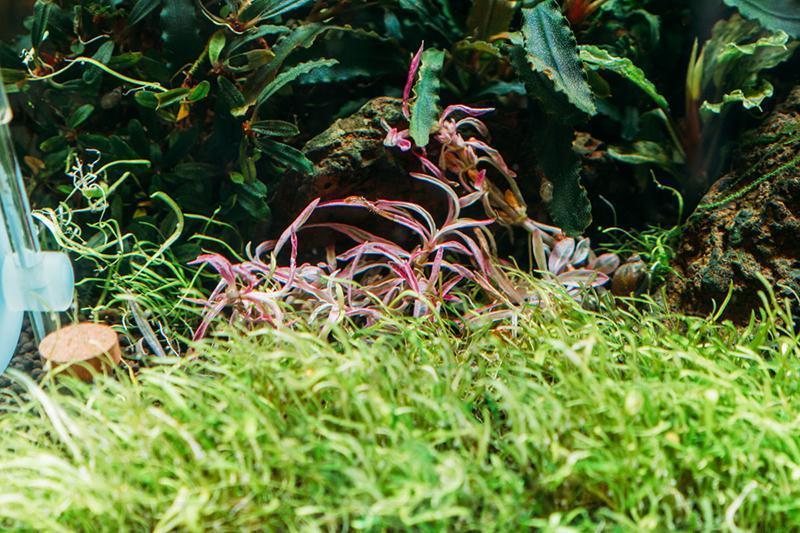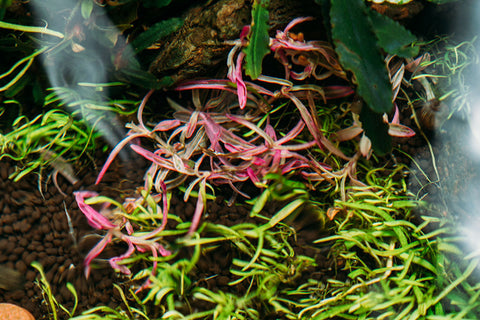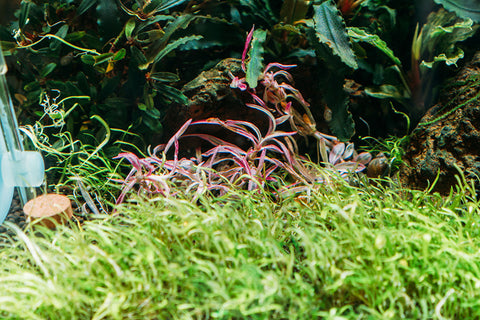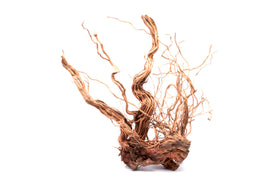
Rare Aquatic Plants: Hygrophila Chai

Hygrophila Chai was born through meticulous selection and patient care. This aquatic plant is an extremely rare mutation of the more commonly known Hygrophila Lancea Araguaia. Founded in 2008 by Wilson Law, he noticed a singular stalk of neon pink in a vast collection of the regular species. This peculiar hot pink specimen was taken and carefully cultivated to introduce Chai to the aquarist community. To make the story better, Hygrophila Chai has earned its name from Wilson's wife, Chai.
Now known for its bright pink coloration, the demand for this aquatic plant is growing rapidly. It grows very slow, making it a rare commodity and sight in the planted tank hobby. It grows in a similar fashion to regular Araguaia, but all the information available is still very limited and obscure. Quantity is limited and supply is infrequent.

As Hygrophila Chai is a mutation from Hygrophila Lancea Araguaia, it makes sense that growth patterns and overall characteristics will be similar. Regular Hygrophila Araguaia is a foreground aquatic plant or midground plant which is named after the Brazilian river in which it comes from. When Hygrophila Lancea 'Araguaia' is grown submerged and kept under proper conditions, this aquatic plant can develop a reddish brown coloration. Its appearance resembles that of aquatic stem plants but it grows in short bushes which can add a nice bush effect to the midground of your planted aquarium.
At the end of the day, we hope to learn more about this mysterious aquatic plant. New plant species are continuously being discovered and our goal is to help cultivate these rarities, preserve nature, evolve with the hobby and provide these unique plants to the community. If you're interested in Hygrophila Chai, check it out here!
Tell us - Was this article helpful? Please leave a comment below!
If you have any questions regarding this article, please DM us on Instagram, Facebook, or email support@buceplant.com so we can assist you - @buceplant





Leave a comment